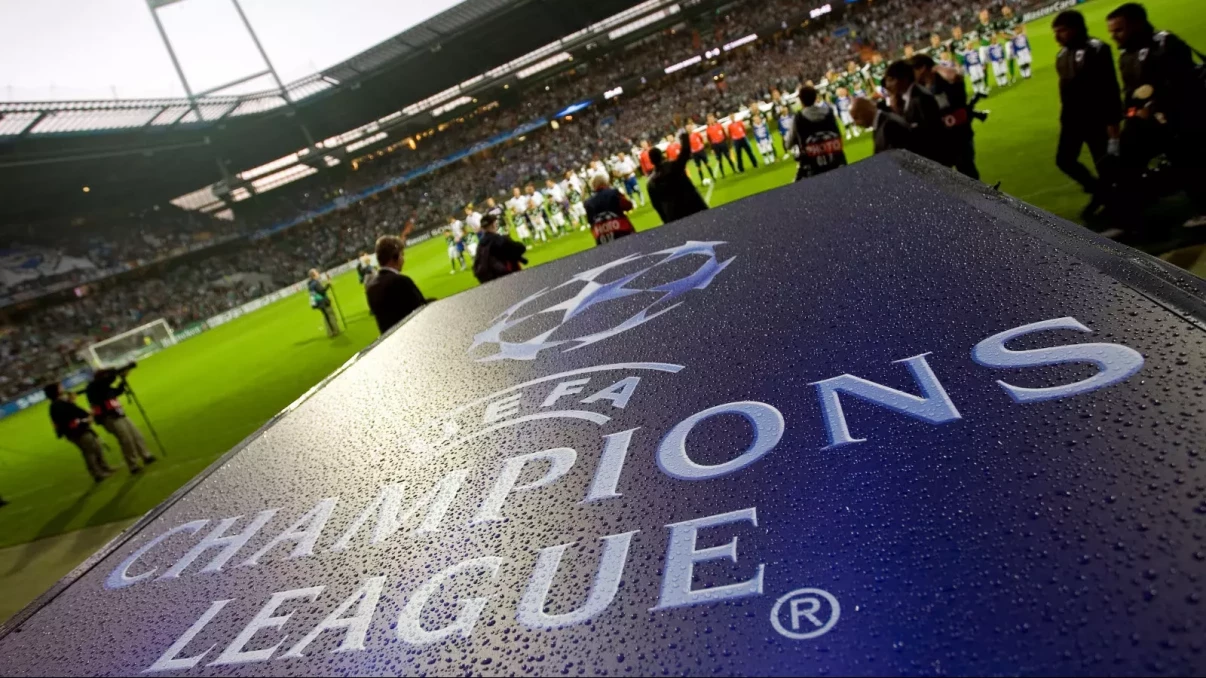Three times teams from outside the 'big six' qualified for the Champions League
 By
SABC Sport
By
SABC Sport
30th April 2024

This season, the Premier League title race has taken all the headlines, and rightfully so.
We rarely see two of the country's finest teams go head-to-head in a Titanic battle for the crown, let alone three. However, that is exactly what we have been treated to this term as reigning champions Manchester City, last season's runners-up Arsenal, and a Liverpool side spurred on by the impending departure of Jurgen Klopp have battled it out hammers and tongs.
With five games remaining, it is anyone's guess as to who will walk away with the title. Online soccer betting tips sites are currently predicting that it will be Pep Guardiola's Blues that run out victorious, and the bookies seem to agree, installing them as +150 favourites following their 5-1 drubbing of Luton Town at the Etihad. But outside of the battle for the championship, there is another head-to-head gong going down to the wire. That's the showdown between Aston Villa and Tottenham Hotspur, with a spot in the top four and the UEFA Champions League qualification that it brings with it.
Should it be the Villans that come out on top at the end of May, then they will join an illustrious club. The seats at the most elite dining in European football are practically always claimed by members of the so-called "Big Six" - namely Manchester United, Manchester City, Liverpool, Chelsea, Arsenal, and Tottenham Hotspur. Yet, the grip these giants hold on the upper echelons of the league table isn't absolute, as Unai Emery looks to prove this term.
On rare occasions, clubs outside this illustrious group have shattered expectations, finishing in the coveted Champions League spots. Here are three such teams that the West Midlanders will look to for inspiration between now and the end of the current campaign.
Newcastle United
The most recent tale was told by Newcastle United last season. Barely six months prior to that campaign getting underway, the Magpies were mired in relegation trouble under the ownership of Mike Ashley, who had held the club hostage for well over a decade. However, a long-mooted takeover by the Saudi Arabian Royal Family suddenly made the Tynesiders the richest club in the world, and the appointment of former Bournemouth boss Eddie Howe reignited hopes at St. James' Park.
The English boss proceeded to lead the club into midtable. The Saudis then injected a modest amount into the club's transfer budget to bring in the likes of Alexander Isak and Bruno Guimarães, and the duo immediately set about bringing Champions League football back to the North East for the first time in two decades. While many expected the Toon to let loose in the transfer market, they were much more modest than anticipated, but their shrewd acquisitions proved to be just the tonic.
Key to their success was the defensive solidity brought in by the likes of Sven Botman, with the Geordies conceding just 33 goals all season, the joint-lowest in the league level with the eventual champions. But perhaps more importantly, it was the change in culture at the club – a belief that they could compete with the best in the land. Victories against the likes of Chelsea, and Manchester United and a 6-1 drubbing of Spurs gave them exactly that, and they ended up qualifying for the Champions League comfortably, finishing four points clear of fifth-placed Liverpool.
Leicester City
Leicester City's triumph in the 2015/16 season is arguably the greatest underdog story in not just football history, but the history of sport as a whole. Pegged by many as relegation candidates at the start of the season, the Foxes defied odds of 5000-1 to clinch the Premier League title. Under the guidance of former Chelsea boss Claudio Ranieri, a squad valued at a fraction of their wealthier rivals had an unyielding work ethic, and their Italian manager's pragmatic tactics were enough to steer them to the title.
Key players like Riyad Mahrez, N'Golo Kanté, and Jamie Vardy became household names as they consistently outperformed their more illustrious counterparts. Their counter-attacking style of play - built on a resilient defence led by captain steadfast Wes Morgan - gave the Midlanders a solid foundation to build upon. The playmaking of midfield lynchpin Danny Drinkwater and his ability to quickly find the likes of Vardy and Mahrez allowed that fearsome duo to shine, and it led Leicester City not just to the Champions League, but all the way to the promised land of the Premier League title.
Everton
Two decades ago, David Moyes' Everton managed to gatecrash their way into the top four, finishing ahead of archrivals Liverpool, the team that would go on to shockingly win the European Cup for the fifth time after coming back from the dead against AC Milan in Istanbul. But while the Reds shone in Europe, their midweek exploits left them languishing domestically, and their cross-Stanley Park rivals took full advantage.
The Toffees' success was built on a tight budget, a strong team ethos, and a tactical system that played to the strengths of their starting eleven. They were solid at the back, with the likes of Alan Stubbs and David Weir providing experience and leadership, while Tim Cahill's arrival brought goals and energy to the midfield. Add to that the hold-up play of striker Marcus Bent, and Moyes' men were grinding out results week in and week out. That ultimately culminated with a spot in the top four, but they never made it to the Champions League proper after Diego Forlan's Villareal knocked them out in qualifying the following season.




